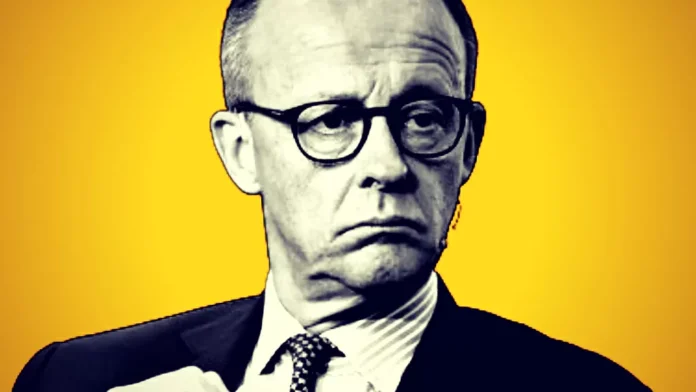As Germany gears up for a crucial election, the political landscape is shifting in a direction that has many questioning the effectiveness of the country’s traditional leadership. With the rise of right-leaning voters, the candidacy of Friedrich Merz, a well-known member of the globalist establishment, is being closely scrutinized. Will change truly follow under his leadership?
On Sunday, Germans will head to the polls to cast their votes in what is being hailed as a pivotal election. The country is at a crossroads, facing numerous challenges both domestically and on the global stage. The outcome of this election will undoubtedly shape the future of Germany and its role in the world.
One of the most significant shifts in this election is the rise of right-leaning voters. This is a trend that has been seen across Europe in recent years, and Germany is no exception. Many Germans are disillusioned with the current state of affairs and are looking for a change in leadership.
This sentiment is reflected in the popularity of Friedrich Merz, a prominent figure within the globalist establishment. Merz, a member of the Christian Democratic Union (CDU), is seen as a traditional conservative and has been a vocal critic of Chancellor Angela Merkel’s policies. His stance on issues such as immigration and the European Union has struck a chord with many voters who feel that the country needs a new direction.
However, despite the growing support for Merz, there are concerns about whether he will bring about the change that voters are looking for. Some critics argue that he is simply a continuation of the same establishment that has been in power for years. They question whether he will truly address the issues that are important to the people and bring about meaningful change.
But the reality is that change takes time, and it is unfair to expect a complete overhaul of the system overnight. Merz has acknowledged the need for change and has promised to address the concerns of the people. He has also emphasized the importance of unity and bringing people together, regardless of their political beliefs.
Furthermore, Merz’s experience and expertise make him a strong candidate for the role of Chancellor. He has a successful career in the private sector and has also held various positions in the government, including Minister of State for European Affairs. This combination of business acumen and political experience makes him well-equipped to lead Germany through these challenging times.
In contrast, his main opponent, the Social Democratic Party’s Olaf Scholz, is seen as a continuation of the current government’s policies. Scholz has been a key figure in Merkel’s coalition government and is unlikely to bring about significant change. This is a concern for many voters who are looking for a fresh start and a break from the status quo.
Ultimately, the choice is clear – a vote for Merz is a vote for change, while a vote for Scholz is a vote for more of the same. The rise of right-leaning voters in Germany is a sign that people are ready for a new direction, and Merz is the candidate who can deliver it.
In conclusion, as Germans head to the polls on Sunday, the country stands at a critical juncture. The rise of right-leaning voters has brought the effectiveness of established leadership into question. However, with Friedrich Merz at the helm, there is hope for real change. His experience, expertise, and promises for unity make him the ideal candidate to lead Germany into a brighter future. So let us embrace this opportunity and vote for Merz – a vote for a better, stronger, and more prosperous Germany.

